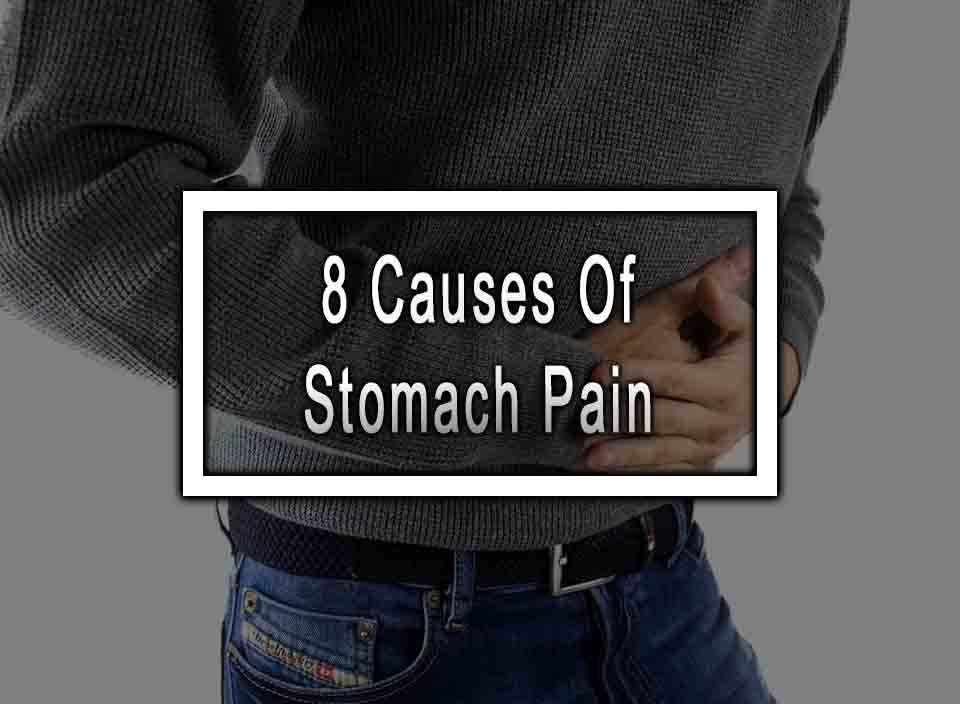Here Are The Causes Of Stomach Pain
Stomach pain is one of the most common health issues that people face. It can be caused by a variety of reasons, from minor digestive problems to serious medical conditions. Stomach pain can affect people of all ages and can vary in severity. In this article, we will discuss the most common causes of stomach pain.
Indigestion
Indigestion is one of the most common causes of stomach pain. It occurs when the digestive system is unable to break down the food properly. The symptoms of indigestion include bloating, gas, and a feeling of fullness. Indigestion can be caused by eating too fast, eating too much, or eating spicy or oily food. It can also be caused by stress and anxiety.
Gastritis
Gastritis is a condition in which the lining of the stomach becomes inflamed. It can cause stomach pain, nausea, and vomiting. Gastritis can be caused by a bacterial infection, excessive alcohol consumption, or the use of certain medications such as aspirin and ibuprofen.
Gastroesophageal Reflux Disease (GERD)
GERD is a condition in which the contents of the stomach flow back into the esophagus, causing irritation and inflammation. It can cause stomach pain, heartburn, and difficulty swallowing. GERD can be caused by a weak lower esophageal sphincter, obesity, and pregnancy.
Peptic Ulcer
A peptic ulcer is a sore that develops on the lining of the stomach or the duodenum. It can cause stomach pain, bloating, and nausea. Peptic ulcers can be caused by a bacterial infection, excessive alcohol consumption, or the use of certain medications such as aspirin and ibuprofen.
Irritable Bowel Syndrome (IBS)
Irritable Bowel Syndrome is a condition in which the digestive system becomes hypersensitive to certain foods and stress. It can cause stomach pain, bloating, diarrhea, or constipation. IBS can be caused by a variety of factors, including genetics, low-grade inflammation, and changes in the gut microbiome.
Inflammatory Bowel Disease (IBD)
Inflammatory Bowel Disease is a group of conditions that include Crohn’s disease and ulcerative colitis. It can cause stomach pain, diarrhea, and weight loss. IBD is caused by an abnormal immune response that attacks the lining of the digestive system.
Appendicitis
Appendicitis is a condition in which the appendix becomes inflamed and infected. It can cause stomach pain, nausea, and vomiting. Appendicitis is caused by a blockage in the appendix that leads to infection.
Kidney Stones
Kidney stones are small, hard deposits that form in the kidneys. They can cause intense pain in the lower abdomen, back, and groin. Kidney stones are caused by an excess of certain minerals in the urine that crystallize and form stones.
Conclusion
Stomach pain can be caused by a variety of factors, from minor digestive problems to serious medical conditions. It is important to identify the underlying cause of stomach pain in order to receive proper treatment. If you experience persistent or severe stomach pain, it is important to seek medical attention. By understanding the common causes of stomach pain, you can take steps to prevent it and maintain good digestive health.
Causes Of Stomach Pain FAQ
Here are the most common questions about the causes of stomach pain.
1. Can stress cause stomach pain?
Yes, stress can cause stomach pain as it affects the digestive system and can cause symptoms like bloating, constipation, and diarrhea.
2. What are the symptoms of food poisoning?
The symptoms of food poisoning include stomach pain, nausea, vomiting, diarrhea, fever, and chills.
3. How can I prevent stomach pain?
To prevent stomach pain, you should maintain a healthy diet, avoid foods that trigger your symptoms, drink plenty of water, exercise regularly, manage stress, and avoid smoking and excessive alcohol consumption.
4. When should I seek medical attention for stomach pain?
You should seek medical attention for stomach pain if you experience severe or persistent pain, bloody or black stools, difficulty breathing, chest pain, or vomiting blood.












